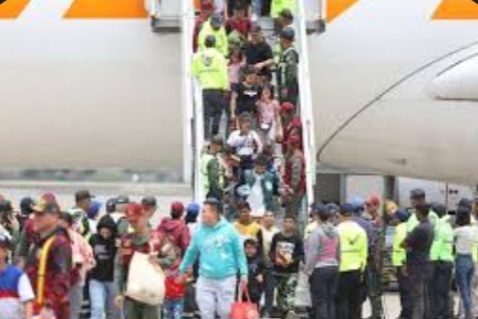The Department of Homeland Security (DHS) announced on Friday that it will revoke legal protections for approximately 532,000 migrants from Cuba, Haiti, Nicaragua, and Venezuela, making them vulnerable to deportation within a month. These individuals arrived in the U.S. since October 2022 through a humanitarian parole program, which granted them two-year permits to live and work under the sponsorship of financial backers.
Homeland Security Secretary Kristi Noem stated that their legal status will be revoked on April 24, 30 days after the official notice is published in the Federal Register. The move follows the Trump administration’s stance on ending what it termed the “broad abuse” of humanitarian parole, a program historically used to admit people from politically unstable or war-torn countries.
DHS emphasized that parole is temporary and does not provide a pathway to permanent residency. Those affected must leave before their parole expires. Previously, beneficiaries could remain in the U.S. until their parole period ended, but the administration had already stopped processing asylum and visa applications that could have extended their stay.
The decision is being challenged in federal court by advocacy groups and affected individuals. Critics, including Karen Tumlin of the Justice Action Center, argue that the policy change will create disruption and hardship for families and communities.
Under the Biden administration, up to 30,000 migrants from these four nations were admitted monthly under the program, while Mexico agreed to accept deportees from the same countries. However, Cuba, Venezuela, and Nicaragua have largely refused to accept deportation flights, complicating enforcement efforts. Haiti has taken back deportees, but ongoing instability has hindered repatriation efforts.
The CHNV program was part of the Biden administration’s strategy to offer legal migration pathways while cracking down on illegal border crossings. Since late 2022, over half a million people entered the U.S. under this policy, but its future now remains uncertain.













